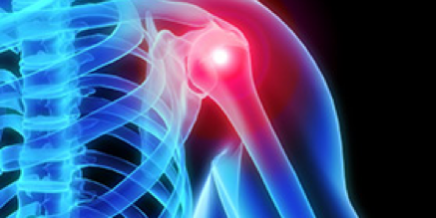Until you suffer from a shoulder injury, it’s easy to take these joints for granted. Compared to other joints in your body, the shoulders are the most moveable thanks to the ligaments, tendons, and muscles that hold the shoulder in place. The large range of motion of the shoulders is beneficial for upper body movement, but it also puts the shoulders at an increased risk for injury. By keeping these tissues strong, you’ll ensure your shoulders stay strong and pain-free.
What’s the big deal about strong shoulders and what exercises can you do to protect them from injury?
Their Purpose
Shoulders are the joints that connect the arms to the body and allow you to move your arms. Think of all the motions made possible because of the shoulders: carrying groceries, vacuuming the floor, picking up children, washing your hair, and reaching overhead. Now, imagine pain in your shoulder every time you do one of these movements.
Shoulders need to be able to withstand pressure and stress. Strong shoulders enable upper body movements and help improve your posture.
Risk of Injury
You may think only baseball pitchers are susceptible to rotator cuff injuries. Made of four muscles that hold the shoulder in place and allow it to move efficiently, rotator cuffs frequently suffer small tears or weaknesses because of overuse, which occurs often to baseball or softball pitchers. But it’s not just pitchers that suffer from rotator cuff injuries. Anyone can damage these muscles through normal everyday movements such as changing a light bulb, painting a wall, playing basketball, or working on an assembly line.
The action of raising your arms above your head places the most stress on your shoulders and leads to rotator cuff pain. Lifting your elbow away from the side of your body also strains your rotator cuff.
Shoulder Exercises
Fortunately, you don’t have to take shoulder pain and problems lying down. With the right stretches and strengthening exercises, your shoulder can grow stronger and more resilient. These can be done at home, at the office, or at the gym. As an added perk for men, building strong shoulders can help provide that desired V-shape. Women, however, don’t have to worry about bulking up too much, as their bodies don’t typically bulk up as easily as their male counterparts’.
The common push-up is a great way to work your shoulders while strengthening your arms, back, abs, and chest at the same time. Shoulder push-ups are another option. With your toes on the floor, hands on the floor, and bottom in the air (so your body makes an upside down V), slowly bend your elbows out to the side and lower your upper body. Then raise it up. Repeat.
Lateral raises and front raises are two more shoulder exercises. You’ll need small dumbbells or a resistance band for these. Hold the weights in each hand or stand on the band and hold each end, standing straight with your legs slightly apart. To perform a lateral raise, lift weights or band straight out to the side, and then lower them back to the side of your leg. To do front raises, slowly lift the weights straight out in front of you and back down.
Shoulder shrugs require small dumbbells. Hold a weight in each hand next to your sides. Then slowly shrug your shoulders by lifting them towards your ears and back down in a circular motion.
Next, try a shoulder exercise called the row. Stand up and bend forward at your waist. Bend your knees slightly. Hold a dumbbell in each hand and let your arms hang down with your palms facing each other. Slowly lift your arms until your upper arms are parallel to the floor, squeezing your shoulder blades together at the same time. Lower the weights and repeat.
Aim to perform shoulder exercises three days a week. Your shoulders will look toned, they’ll be strong for daily moving and lifting, and they’ll be protected from possible pain and injury.
A RICE Fix
Have shoulder pain? Rest, Ice, Compression, and Elevation should help overcome the problem within a couple weeks.







